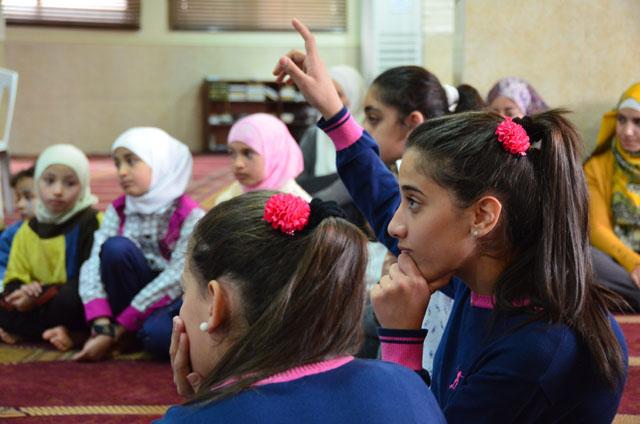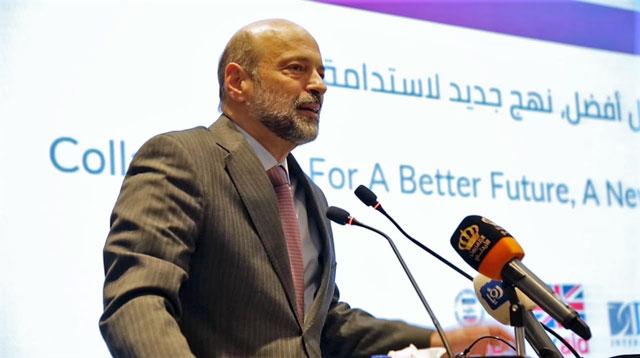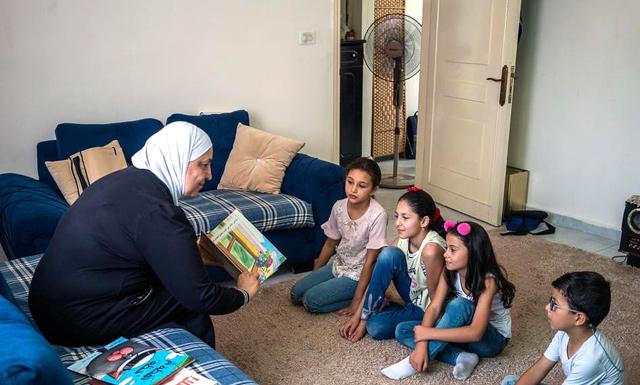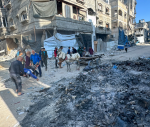You are here
Jordan’s 'We Love Reading' wins UNESCO literacy prize
Sep 07,2017 - Last updated at Sep 07,2017
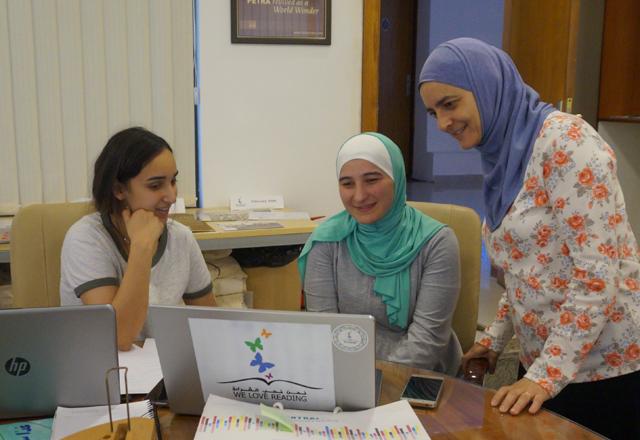
Rana Dajani, who developed the 'We Love Reading' programme with her family in 2006, is seen with volunteers (Photo courtesy of UNESCO)
AMMAN (UNESCO) — A passionate change maker, Rana Dajani founded “We Love Reading”, a community-based programme designed to foster the love of reading in children in Jordan.
Rana developed the programme with her family in 2006 around their kitchen table, with the dream of establishing a library in every neighbourhood in the Arab world by training individuals to read aloud to 4-10 year old children from local communities.
So far, Rana has instilled the joy of reading in children across Jordan and in 33 countries around the world through 1,500 initiatives of the “We Love Reading” programme.
Rana explains that: “The way to plant a love for reading in children is to read aloud to them.” She started by holding story-time sessions in her neighbourhood mosque and began recruiting volunteers to read aloud to kids.
Volunteers work to become “reading ambassadors” by completing two-day training sessions and learning about how to read aloud engagingly and attract children to their “library”. The volunteers are then provided with a “seed library” of 25 stories and can enact their library in any community space.
Rana requires that volunteers “pay-it-forward” by training others and this has also ensured the strong spread of the programme.
UNESCO’s King Sejong International Literacy Prize, established in 1989 with the support of the Korean government, gives special consideration to the development and use of mother-tongue literacy education and training.
“We Love Reading” has won numerous awards both locally and internationally but the UNESCO prize is a huge point of pride for Rana.
The prize-giving ceremony will be organised at the UNESCO headquarters in Paris. It is part of the organisation’s global celebration of International Literacy Day, held in the context of the 2030 Education Agenda by which the international community has pledged to ensure inclusive and equitable quality education and lifelong learning for all.
The UNESCO Amman office has been taking a leadership role in ensuring the implementation of the 2030 Agenda, striving to ensure inclusive and quality education for all and promoting lifelong learning.
In Jordan, UNESCO is committed to strengthening national capacities, striving to encourage and facilitate access, quality, relevance and equity in the delivery of educational services to all beneficiaries, including Syrian refugees.
On September 8, Literacy Day will be celebrated around the world, offering a moment to review the progress made and ways to tackle the challenges ahead. UNESCO’s Director General Irina Bokova explains: “This year, the event is devoted to better understand the type of literacy required in a digital world to build more inclusive, equitable and sustainable societies. Everyone should be able to make the most of the benefits of the new digital age, for human rights, for dialogue and exchange and for more sustainable development.”
This year’s Literacy Day event will bring together stakeholders and decision makers from different parts of the world to examine how digital technology can help close the literacy gap and gain better understanding of the skills needed in today’s societies.
Rana is now looking to technology to ensure the sustainability of the programme, creating a virtual community offering online read-aloud trainings for parents and mobilising volunteers using a mobile app that will also be used as a monitoring and evaluation tool. She reflects: “We won’t let the digital age control us; we are instead taking control of technology to further advance us.”
Related Articles
A small Jordanian read-aloud group for children has snowballed over the years, spreading all over the country and trickling out of its boundaries, creating umpteen mobile libraries and an army of storytellers.
AMMAN — Prime Minister Omar Razzaz on Tuesday expressed hope that the “We Love Reading” (WLR) initiative would play an influential role in c
AMMAN — Rana Dajani, a Jordanian scientist and founder of local organisation “We Love Reading” has been named as this year’s UNHCR Nansen Aw


